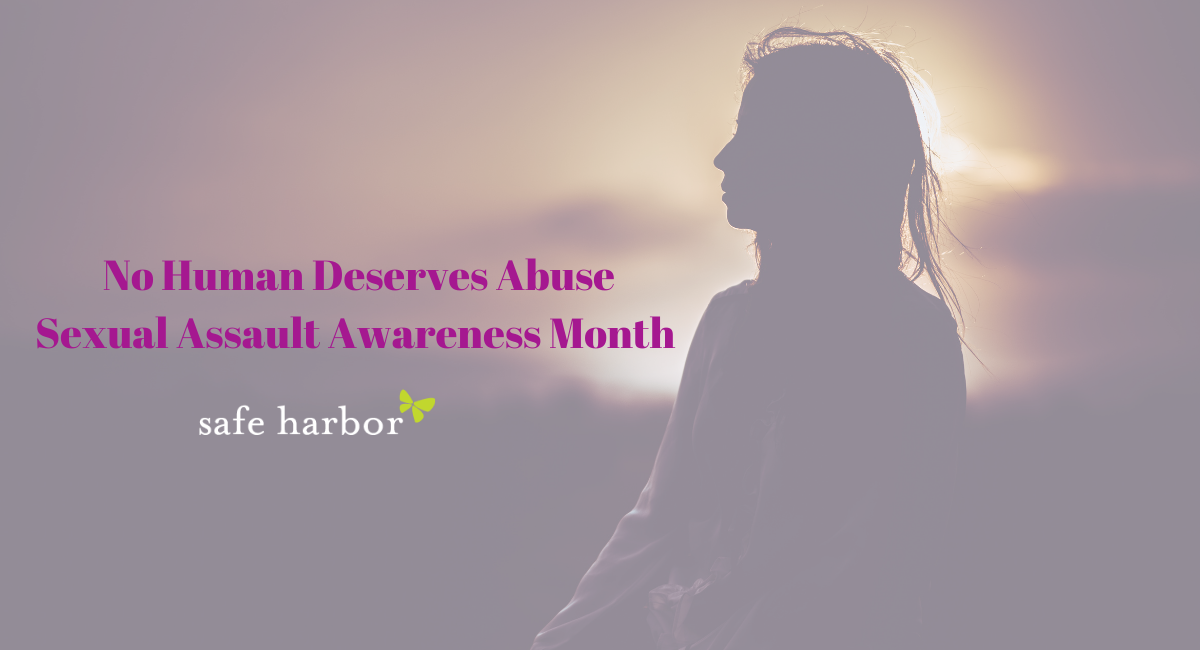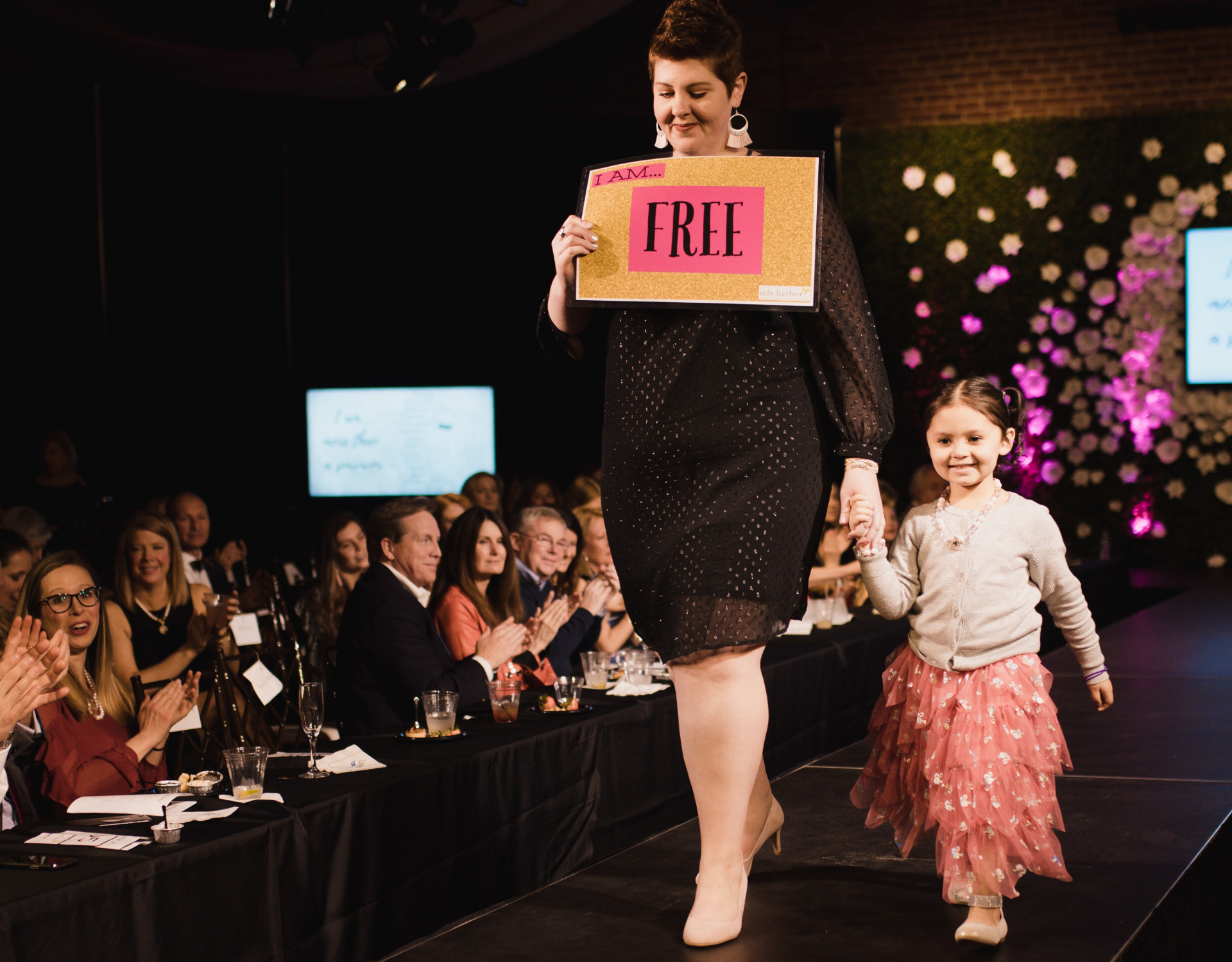No Human Deserves Abuse
Domestic abuse and child abuse are epidemics that impact many people and families. 1 in 4 women and 1 in 9 men are victims of domestic violence. In a report from the Child Maltreatment 2019 report, there was an estimated 656,000 victims of child abuse, in the US, in 20191
These are both serious, tragic realities that have a major correlation. Many of you have likely heard of the cycle of abuse. The abused become the abuser. This is a serious issue…but not the only cycle that exists. Many victims of child abuse and children who have witnessed domestic violence grow up to experience intimate partner violence themselves as well.
Domestic violence is not a one-time occurrence, and neither is familial child abuse. These instances teach children what is “normal”, what to expect in life, or who to trust or not trust. One group of children that significantly feels the cycle of intimate partner abuse is those who have been sexually abused.
April is Child Sexual Abuse Awareness month; it’s important to stop and reflect on how this specific type of abuse can harm a child and their future. Victims of child sexual abuse (CSA) are at an especially increased risk of risky sexual behaviors, sexual victimization, and domestic violence by a trusted or close partner.2
This kind of abuse can redefine what trust, love, respect, and value is. Most victims feel dirty or broken during and after experiences of abuse. Some are willing to quickly trust others to find love and care, to feel respected, or to feel wanted. Others may try to erase their past by engaging in behaviors to a point of significant harm to themselves.
Child sexual abuse, like child abuse and witnessing domestic violence by their caregiver(s), harms a child in a way that is considered an adverse childhood experience, and can change the survivor’s way of life for years after.
In addition to the harm that sets back abused children, those who end up homeless, who abuse drugs, or who engage in criminal activity as a response to their abuse also have increased risks for re-victimization. Furthermore, certain communities such as African American, Latino, Asian, and the LGBTQ+ communities may experience further victimization that many of their non-abused peers already face. It is important to recognize our place in helping reach out to the abused so that we can prevent further harm to them, regardless of who they are, what they do, or any other factor.
So how do we help? How can we change the trajectory of abuse that is a dangerous cycle? We cannot expect children or even adult victims who have not been able to heal to just fix themselves any more than we would expect someone to make themselves rich, immediately.
Some ways to be able to help are through education, support, compassion, and action. We live in a world that says “I will be thinking of you” when they hear someone going through something hard. Thinking of someone is great, until it’s not. Thinking does not create change; it does start change.
If you have been interested in this blog, check out the resources, and learn more about the prevalence of abuse, the intensity of the cycle, and the need for education. Learn how risks are often exacerbated for those in socially neglected communities.
Next, find out how you can support the work to help those who have experienced or are experiencing sexual abuse. Supporting your local youth centers, rape crisis centers, domestic violence shelters, and other community agencies designed to fight abuse of all types.
Another important step is to be fully compassionate. No one asks for abuse. Speak compassionately and understanding; do not judge how children or survivors respond to their trauma. Be aware that people in non-white community groups and the LGBTW+ community are at a higher risk to be abused, to experience re-victimization, and to be criminalized for their “coping mechanisms”.
No human deserves abuse- whether it is racism, child abuse, domestic violence abuse, or another kind.
Finally, act. If you know a child who is being abused, call the confidential hotline added below.3 Reach out to children you teach at school, church, or in sports to make sure they are ok. If you’re the parent of a child who has been abused, be sure to get your child the therapy and support they need. Consider volunteering, anywhere and be a kind person who shows children what respect and love looks like. And finally, be aware of the signs of child abuse.
This is a heavy topic; many children have experienced this topic. If this has been hard for you to read, please, practice self-care. You have worth and value and deserve everything good in life. Every person, child, and family deserves to be respected; help be the person to do that.
Resources:
1. Child Help Abuse Statistics
2. CDC, Child Sexual Abuse Fast Facts
3. To report abuse, look up your local child protective services office or go to
Child Help Hotline for emotional assistance and help to report.
4. If you or your child need emotional support, you can also go here: RAINN Hotline




